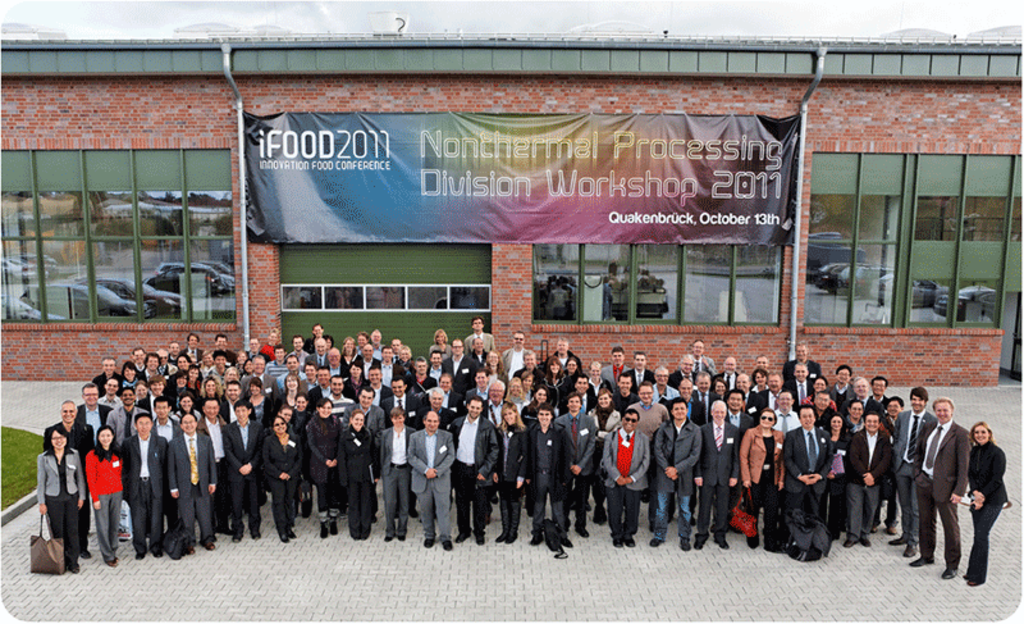Scientists from 33 countries met at iFOOD2011 at the DIL
Large input for sustainable food expected through “non-thermal processes”
Quakenbrück. Sustainability and efficiency of food products were two outstanding topics at the “iFOOD2011 – Innovation Food Conference” that ended 14 October 2011. The German Institute of Food Technologies (DIL) organized this conference, which took place in Osnabrück and Quakenbrück, Germany. From 11-14 October 2011, about 200 scientists and researchers from 33 nations met in Lower Saxony to share and exchange their latest research results.
In general, it takes at least three to five years to translate fundamental research results into food products. Therefore, at the end of the conference, it was foreseeable which turn the development of new food products will be taking: reduction of chemical additives, improved utilization of raw materials leading to waste reduction, reduction of energy consumption, maintaining the natural taste even with prolonged shelf life.What at first sounded like squaring the circle was then explained by the scientists who elucidated their research results from the past year in their lectures.
In his introductory address, Prof. Marc Hendricks of the University of Leuven, Belgium, emphasized the “green opportunities” offered by novel non-thermal processes that also were a topic at the meeting.
Currently, the food industry is still concerned with traditional processes, while advanced high pressure methods open the way for a completely different type of production: the products are being subjected to high pressures of 7,000 bars instead of being treated with heat and/or additives. This protects the natural taste, reduces the energy consumption and allows achieving a reasonable shelf life without additives.
Prof. Stephan Töpfl of the DIL reported on the production of sustainable fruit, vegetables or milk beverages using pulsed electrical fields. He also demonstrated how advanced technology could be cost-efficiently employed to the efficient production of cotton oil, which will improve the supply situation in Asia.
Prof. Kazutaka Yamamoto of the National Food Research Institute in Japan elucidated in his report the new opportunities high pressure processes offer in the production of pasta made from rice flour.
“Many examples presented during this conference showed that we can and must change the production processes in the food industry in order to achieve the sustainable production goals. However, this will require fundamentally different processes,” summarized Prof. Dietrich Knorr of the Technical University of Berlin.
Visiting the DIL in Quakenbrück on Thursday, the participants were very impressed about the multi-facetted possibilities the domestic research institute offers. In particular, the “High Pressure Application Center”, now operating in its third year, attracted interest, as did the broad range of analytical methods and technologies available.
“Following the previous conferences, which took place in Beijing and Chicago, it has been a great honor and pleasure for us to welcome leading scientists in Osnabrück and Quakenbrück,” summarized Dr. Volker Heinz his feelings and added, “We were all introduced to fresh ideas for industrial implementation. Additionally there was the discussion on where research will be heading in the months to come and on the objectives for the presentation of these results at the next conference, which will take place in Melbourne, Australia, in 2012."






